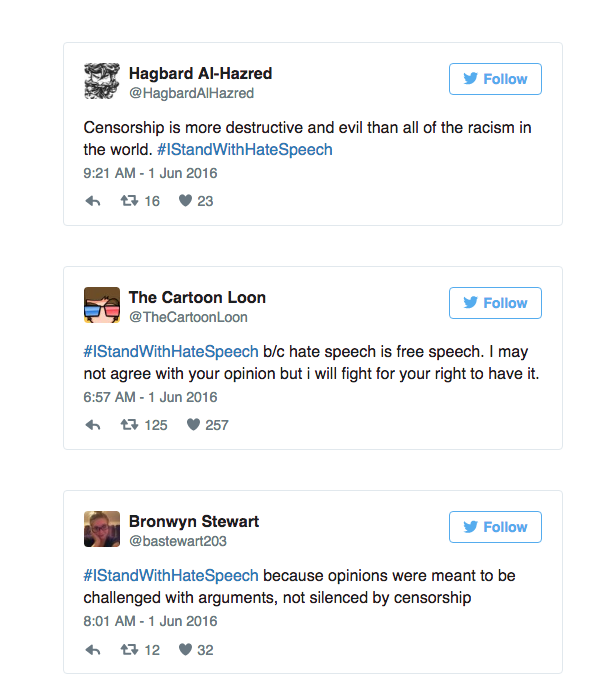EU commissioner Vera Jourova censors free speech
 One more reason to vote to leave the European Union arrives. “The internet is a place for free speech, not hate speech,” says Vera Jourova, the EU commissioner responsible for justice, consumers and gender equality.
One more reason to vote to leave the European Union arrives. “The internet is a place for free speech, not hate speech,” says Vera Jourova, the EU commissioner responsible for justice, consumers and gender equality.
Jourova was born in 1964 Czechoslovakia. She grew up under Communist rule. You might suppose she’d know better than to meddle with hard-won freedoms. She says she understands what freedom means. Vera Jourova loves free speech. But Vera Jourova wants to censor free speech, to shackle it. The bits she does not like, she calls hate speech. These parts of free speech, says its champion, must be banned. And because the undemocratic EU works the way it does, what she says goes for every country in the bloc.
There’s a lot about European regulations, or regulatory intentions, that U.S. Internet giants don’t like. They hate being described and treated as monopolies, and a mention of paying taxes where they operate — as European countries have long wanted them to do — instantly puts them on the defensive. Yet ask Facebook, Microsoft, Twitter and YouTube to censor their content, and they will happily oblige. Of all the U.S. rules that have allowed them to get as big as they have become, freedom of speech appears to be least important.
The four U.S. companies have accepted a European Union-dictatedcode of conduct, which obliges them to “review the majority of valid notifications for removal of illegal hate speech in less than 24 hours and remove or disable access to such content.” The reviewing is to be done by “civil society organizations” and “trusted reporters”: the EU and its member states are to “ensure access” to them…
Laws limiting free speech have a tendency to change in response to terrorist attacks, electoral upsets, changes in public attitudes. Russians and Turks can attest to how quickly anti-terrorist legislation can turn into a system of censorship and suppression. Europe is not immune to versions of these developments. The U.S. giants’ willingness to work with governments and advocacy groups to uphold speech limitations makes them unreliable as platforms.
On Twitter, a few see the dangers:
You can vote to change this. You can vote ‘out’.
Posted: 2nd, June 2016 | In: Politicians, Reviews Comment | TrackBack | Permalink



